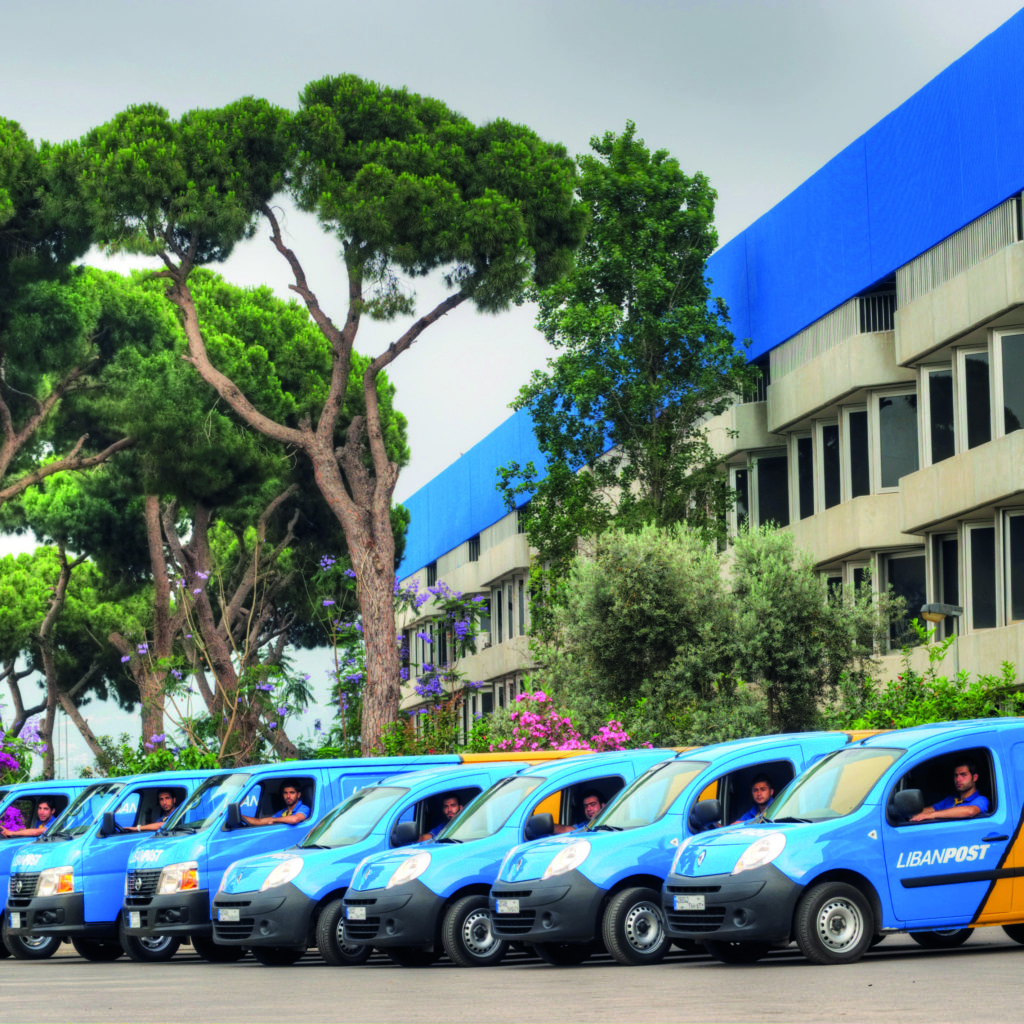
headquarters in Beirut-Rafic Hariri International Airport
This year’s winner is relatively new to the postal sector, having been launched in its current setup in 2002, when there were no postal services in Lebanon. LibanPost’s main aim was to diversify to generate much needed revenues, and at the same time build up its traditional mail services. Today, more than 50% of the post’s revenues come from non-postal activities, such as financial and government services. In 2007 LibanPost became profitable and it has posted year-on-year growth ever since.
“An award is always heart-warming news for the team,” comments Khalil Daoud, chairman and managing director of LibanPost. “The Service Provider of the Year recognition from such a prestigious international body as Postal and Parcel Technology International is a reward for all the efforts put into client service excellence since LibanPost’s inception.”
In the 16 years since it was launched, LibanPost has grown its offering to now include 160 different government services, from passport renewal to driving license applications and document certification. One of LibanPost’s newest services is its car registration renewal – it has 17 locations in its network where it produces license plates and changes them for citizens, either in those locations or at home.
Daoud says, “Our product offering now naturally encompasses all the postal services and philatelic products, but also includes a bouquet of financial solutions and governmental services. Indeed, LibanPost has positioned itself as an intermediate counter between public institutions and the citizens and has won the friendly label of ‘daily life facilitator’. We also chose to address needs that may be viewed as bold moves, such as offering a car license plate printing and mounting service, or selling convenient electronic gadgets directly imported by the post.”
New developments
Developments for the post in 2018 include the implementation of a new addressing system that will help to improve last-mile delivery. The aim is to make the solution as easy to use as possible by using geolocation data. Customers will access an algorithm through the post’s website, enter the geolocation, and the algorithm will give them a code to write on the mail item.
LibanPost is also working on improving cross-border e-commerce services for its customers. The post spotted a trend for increased numbers of parcels coming into the country from China. It found that a lot of these parcels were getting stuck in customs in Lebanon, therefore delaying final delivery. To combat this, the post decided to select the products most in demand, buy and import them itself, clear it through customs and then sell the products to customers in the post offices. While there is a small premium for customers to pay, it is a much quicker and more convenient way for them to get the goods from China that they want.
“We count on an ever-adaptive and agile strategy, given the speed at which technology develops. Being in an industry where margins are small, we have to constantly chase productivity gains, service excellence and service convenience. We will continue to strive to develop our digital offering and reach, and adapt to the growth of e-commerce,” Daoud explains.
Staff recognition
LibanPost has also made huge improvements in employee relationships and management since its inception, one of the biggest being gender parity. The post has been working hard to encourage more female workers into the industry, and recently won the Corporate Social Responsibility Award at the World Post & Parcel Awards for its work.
The post has also been working hard to increase the number of touchpoints it has with customers. It has invested in new mobile post offices, self-service kiosks, home services, and online services. Its branches have also implemented longer opening hours. In 2017, the postal operator opened three new self-service kiosks in three new shopping malls in different districts of Lebanon. LibanPost also opened two kiosks in a supermarket and in a fuel station, and three production centers at traffic vehicle centers.
LibanPost opened post offices in remote areas to avoid the need for citizens to travel to designated governmental offices to deal with personal admin, pay their bills or simply transfer money. In 2017 alone, the post carried out 2,026,772 transactions across its network – an average of 427 transactions per hour – a 10% increase from the previous year.
“We have significantly increased our number of touchpoints in just a few years,” says Daoud, “with longer opening hours, seven days a week, and have grown an omnichannel sales approach that is innovative and convenient for customers.”
LibanPost has also equipped employees to operate as mobile post offices – recently, letter carriers were equipped with an advanced version of a handheld device featuring a biometric module. The fingerprint biometrics module is a highly accurate and reliable identity verification method. This portable device, carried by every postman, offers most services to clients through simple touch, accomplishing personal processes through fingerprint identification.
“With the rise of e-commerce and the decline of letter mail, along with vast technological developments, we have to adapt to the highly competitive local and cross-border parcel delivery service. Speed, convenience of delivery and low cost are all requested by our customers. This has a profound impact on individual organizations and on the inter-postal collaboration,” Daoud explains.
The post will continue to look at ways it can diversify its services to meet changing customer demands and is exploring how it can better serve senior citizens in the future. “Taking care of the environment is also very important,” Daoud adds. “The post has to do its share. Recently, during the garbage crisis in Lebanon, we chose to raise awareness and proceed with a sorting and recycling initiative. We hope to be able to implement a cleaner transportation strategy and reduce our energy and paper consumption over the years to come.”
Watch this video to learn more:
Also shortlisted:
- Bpost
- Australia Post
- Canada Post


